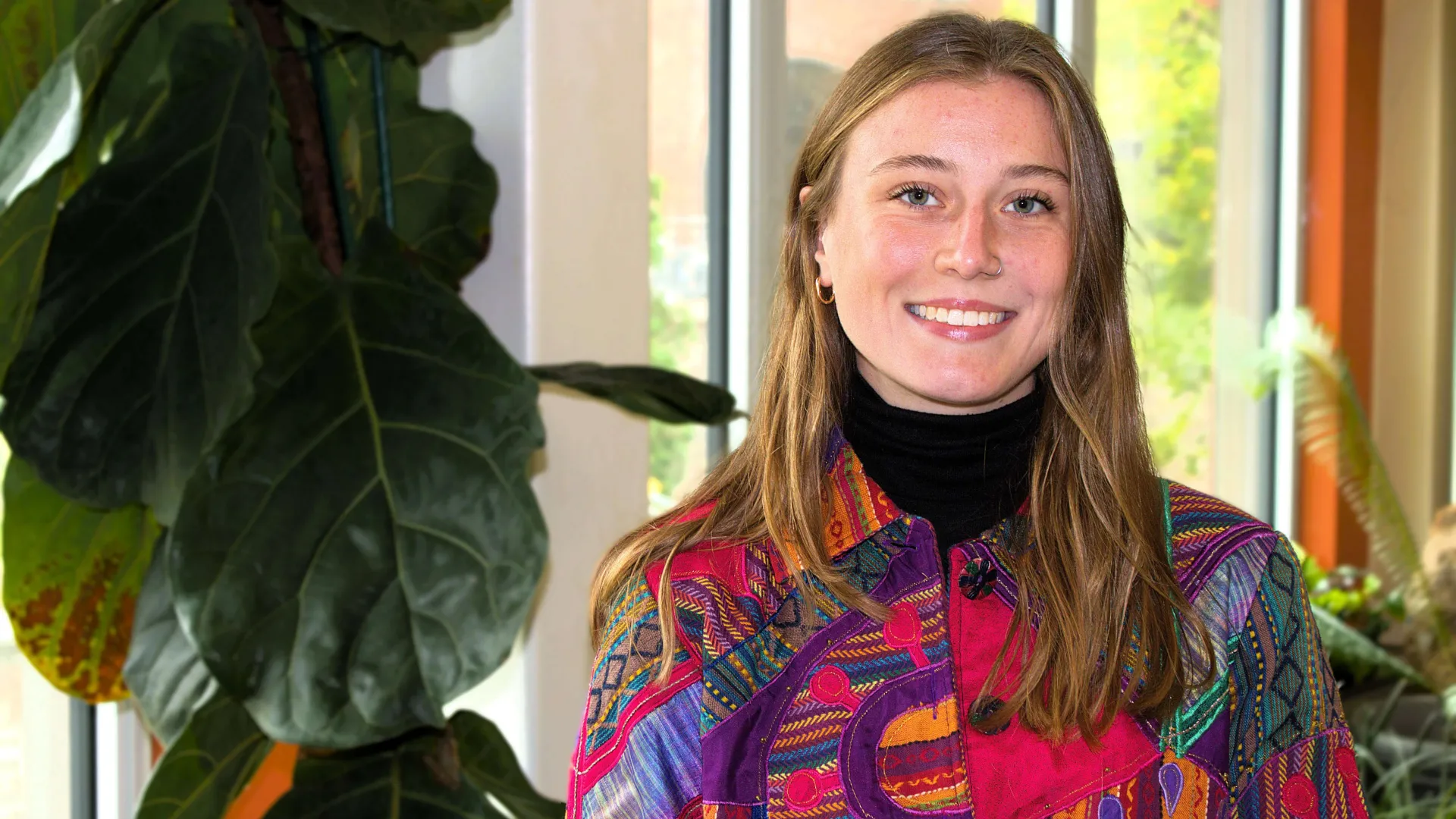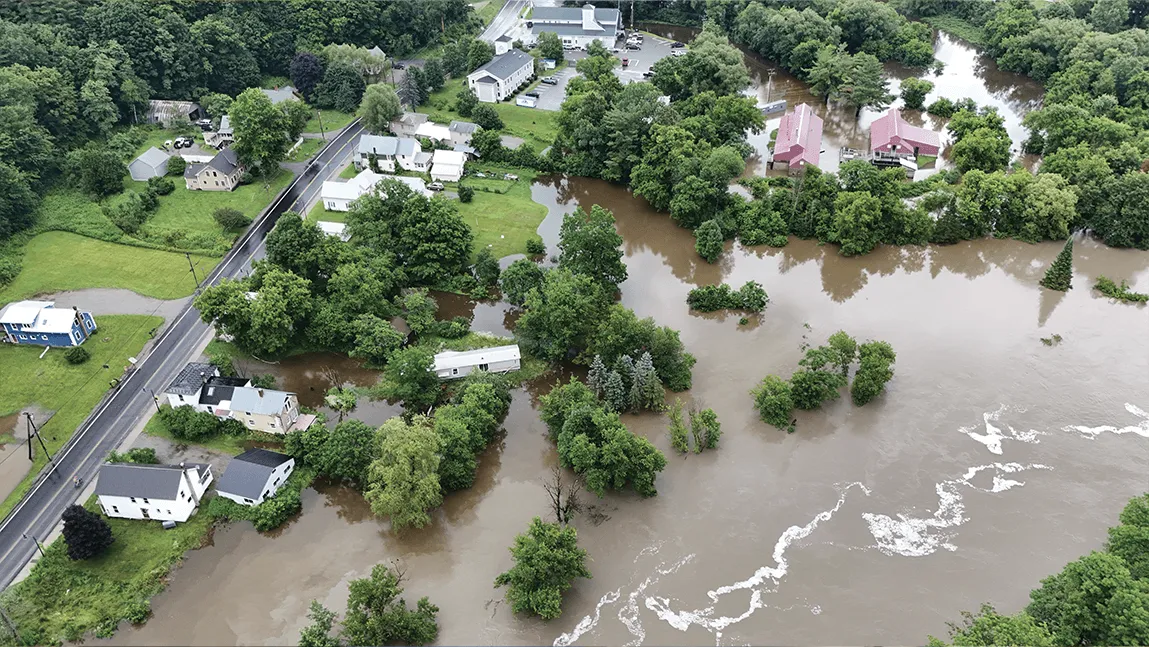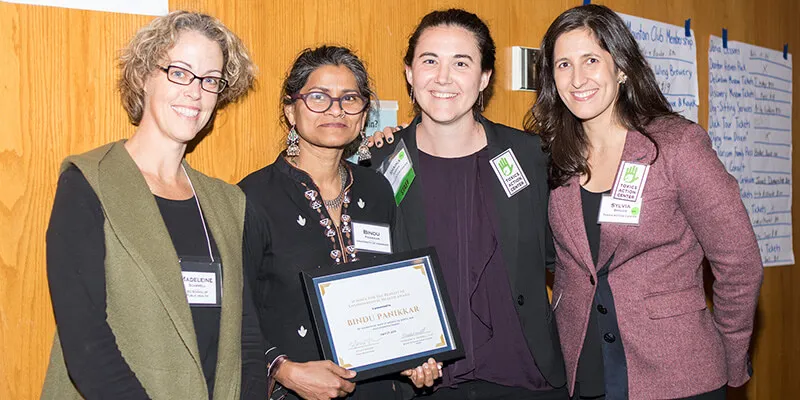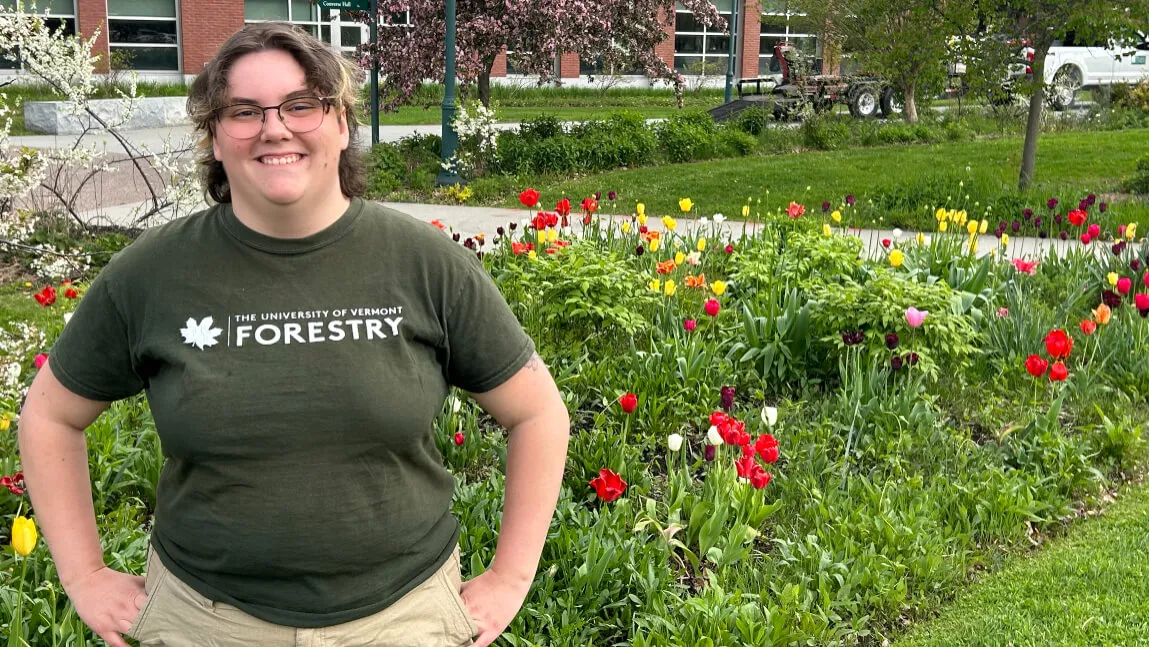Whether you’ve known since freshman year that you wanted to continue your education beyond your bachelor’s degree, or if you decided during your studies that you wanted to continue to follow your passions into graduate school, the AMP is a great option for students looking to save time and money as they earn an advanced degree.
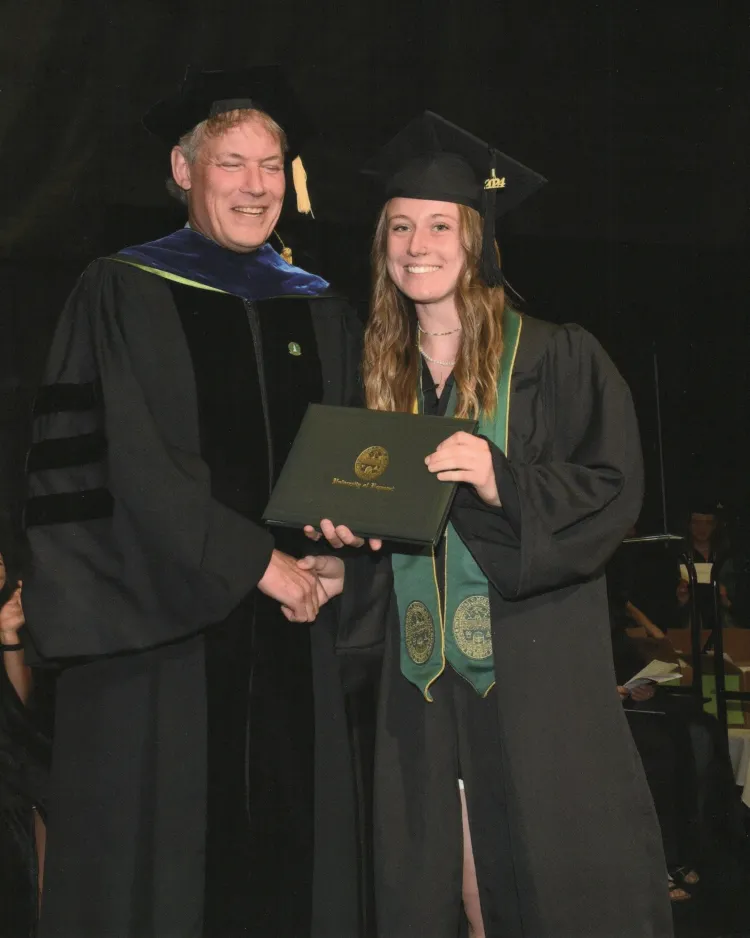
Cat Mawn ’24 graduated with her B.S. degree in Environmental Studies with a minor in Public Policy analysis. But before she walked across the stage, she’d already completed significant work toward her Master’s degree in Natural Resources and her master’s thesis. “The idea of pursuing a master's degree had been in the back of my head since freshman year,” Cat explained. “Some friends of mine in my dorm were talking about it. I hadn't really considered the possibility of being able to do that for environmental work until the fall semester of my senior year. That was very unconventional, because people typically apply their at the end of their sophomore year or the beginning of their junior year.”
Cat described her decision to apply for the AMP as a realization that she “wasn’t ready to be done” with her education. Cat began her college journey in the fall of 2020, and believes that she didn’t really get the hang of college life until she joined the Cross Country and Track teams as a sophomore. As more classes shifted to fully in-person learning, Cat started getting to know faculty better, which served her well once she made the decision to pursue a master’s degree.
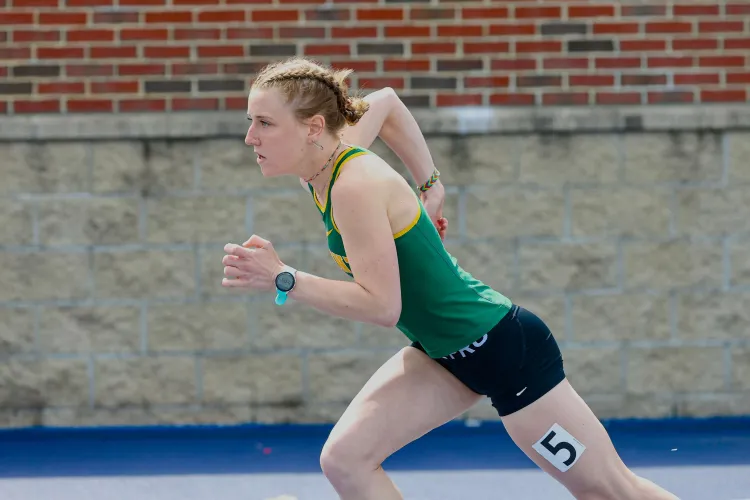
“From the perspective of someone who did their undergrad degree here, you really gain a great relationship with the faculty that can be harder or take longer for outside master’s applicants to attain,” Cat explained. “My advisor for most of undergrad had gone on sabbatical, and when I told my new advisor that I was interested in the AMP, she said, ‘let’s make this happen,’ and became my graduate advisor. It just worked perfectly.”
Cat’s undergrad, and now graduate, advisor is Professor Bindu Pannikar, whose scholarship focuses on environmental health, policy, and justice, which dovetails nicely with Cat’s interests. “I took classes in political science, and gender, sexuality, and women’s studies as an undergrad, and those were very interesting to me,” Cat said. “I was looking for a way to intersect that work. Towards the end of my time in undergrad, I had declared my minor in public policy analysis. So a lot of my environmental work stems around social justice, political science, and economics.”
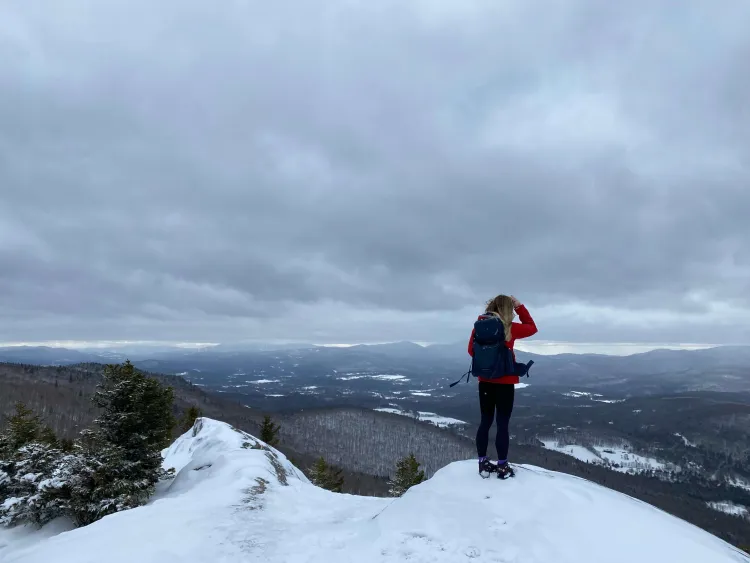
Before Cat began her graduate studies, Professor Pannikar had been working on a project with the Vermont Community Broadband Board (VCBB) researching digital equity in the state. “Bindu invited me to come to a meeting to see if it was something I wanted to work on with her,” Cat said. This kind of public sector work matched up nicely with Cat’s academic and career interests—when she was a junior, she had a year-long internship with the Town of Essex where she helped integrate state legislation into the Town Plan.
“I got lucky with timing since the town plan is updated every eight years, and I was taking a course that paired me with an internship. I worked on the town plan for over 200 hours that year,” Cat recalled. “That process gave me insight on what community change looks like. It was sometimes frustrating work; I loved it, but bureaucratic work can be slow moving. That firsthand experience really opened my eyes and showed me that this work is what I’m really interested in pursuing.”
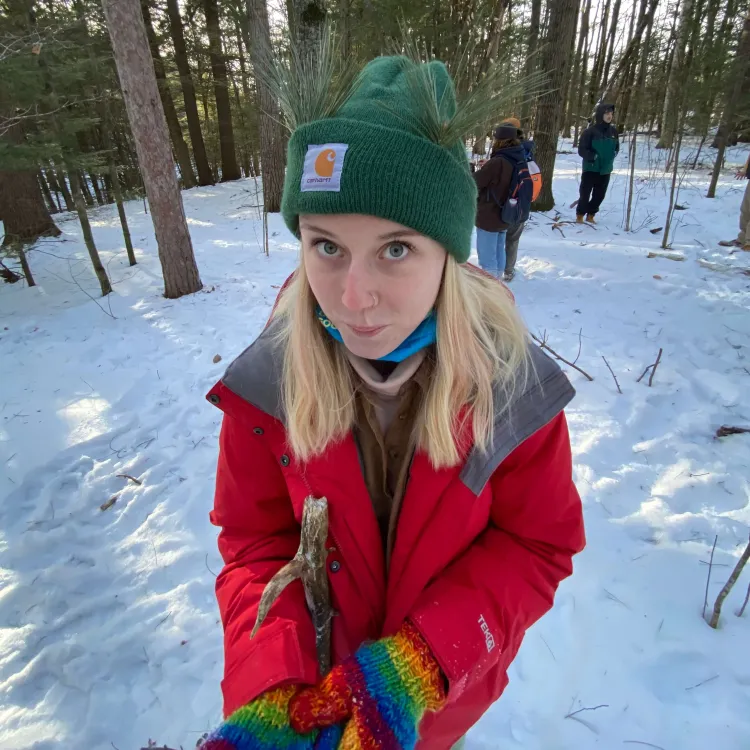
For the uninitiated, Cat explained the concept of digital equity like this: “Digital equity refers to equitable access, affordability, and education in digital literacy. That can mean knowledge about how to navigate your digital devices, or having access to broadband speed internet, which is the baseline internet you need to be a good user of the digital world.” For Vermont specifically, digital equity advocates are especially curious about access for underserved populations such as people living in rural areas, the elderly, and incarcerated people.
Vermont has a plan to ensure that 100% of the state has access to broadband internet by 2034. “That plan is related to our work because we were researching which Vermont demographics has a disproportionate lack of access to broadband speed internet,” Cat explained.
Cat’s research and thesis focus on the state’s incarcerated population, and how climate change impacts correctional facilities and their connection to the broader world. “Designing my research question and the framing is almost like a tornado,” Cat said. “But I really do enjoy it because I am learning so much from these conversations with stakeholders and folks who have done research in carceral facilities before.” The project Cat is working on has a twofold focus on both the digital and climate readiness of correctional facilities.
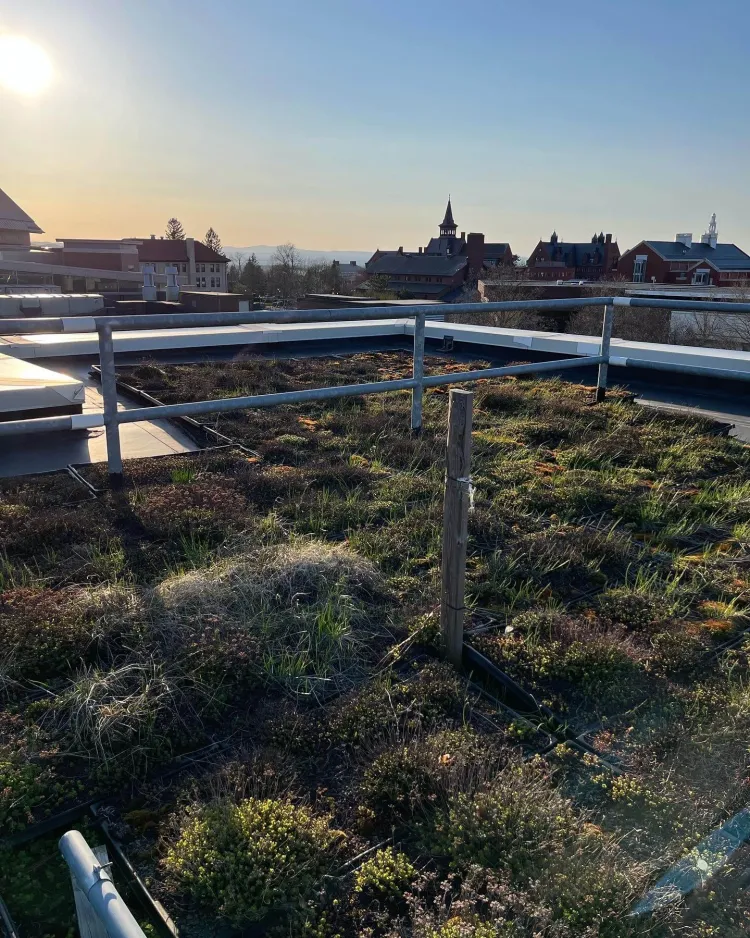
Cat believes that her undergrad experiences and classes as a Rubenstein School student gave her the strong foundation she needed to succeed in graduate school. “I took a course during my sophomore year where everything started to click,” Cat recollected. “It was called the Greening of the Rubenstein School. We did research and audits of the School’s climate and energy goals. Specifically, I performed energy audits on all the Rubenstein School buildings. That was my first exposure to less lecture content and more application of ideas. It was really incredible.”
Additionally, Cat’s experience in NR 4060, Environmental Problem Solving and Impact Assessment, helped prepare her for the research and data analysis she’s doing now as a graduate student. “That was closely related to what I'm doing now in terms of writing grant proposals and working with community partners,” Cat explained. “NR 4060 was a really great class that set you up with someone in the state that needed help with something like a town plan, for example.” Getting so much experience with public sector policy work as an undergraduate is part of what inspired Cat to pursue her master’s. “I worked with the town of Bolton, and they were specifically interested in how recreation is impacting their biodiversity. Those classes gave me a taste of research, especially research that blends the social and natural sciences.”
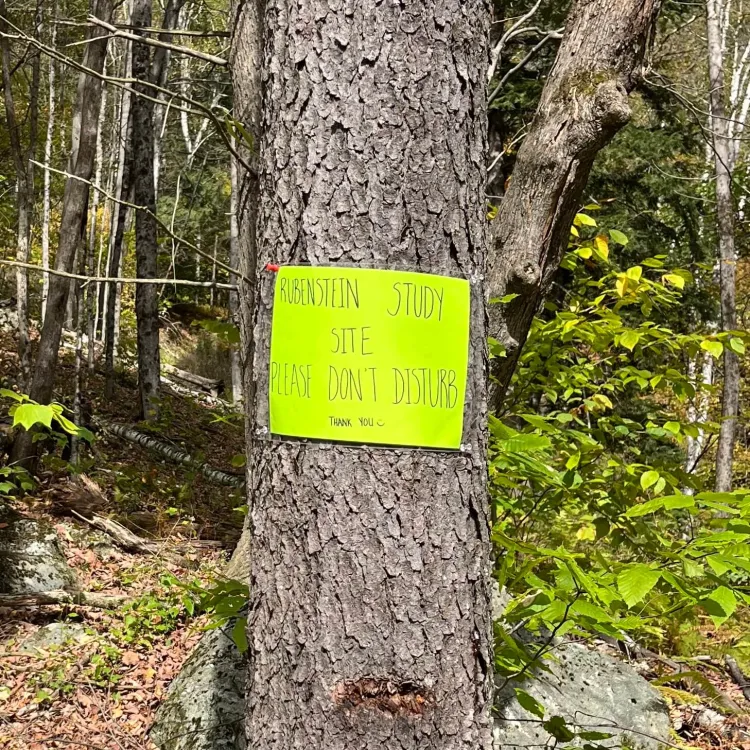
Cat’s advice for students who are interested in applying for the AMP is easier said than done: quiet your self-doubt and imposter syndrome. “One of the reasons I began pursuing the program so late in the game is because I didn't really think I was worthy of a master's degree,” Cat said. “But that was a bit of ignorance on my part, and a consequence of not researching it enough. I didn’t understand that I could tailor my work to my interests. I didn’t know that my scope of interest was deserving of rigorous scholarship. Once I decided to do it, the faculty and staff here at Rubenstein could not have been more helpful or supportive.”
Current Rubenstein School students interested in the Accelerated Master's Program should contact their academic advisor. For general inquiries about pursuing a graduate degree in the Rubenstein School, you can learn more here.
All photos courtesy of Cat Mawn
